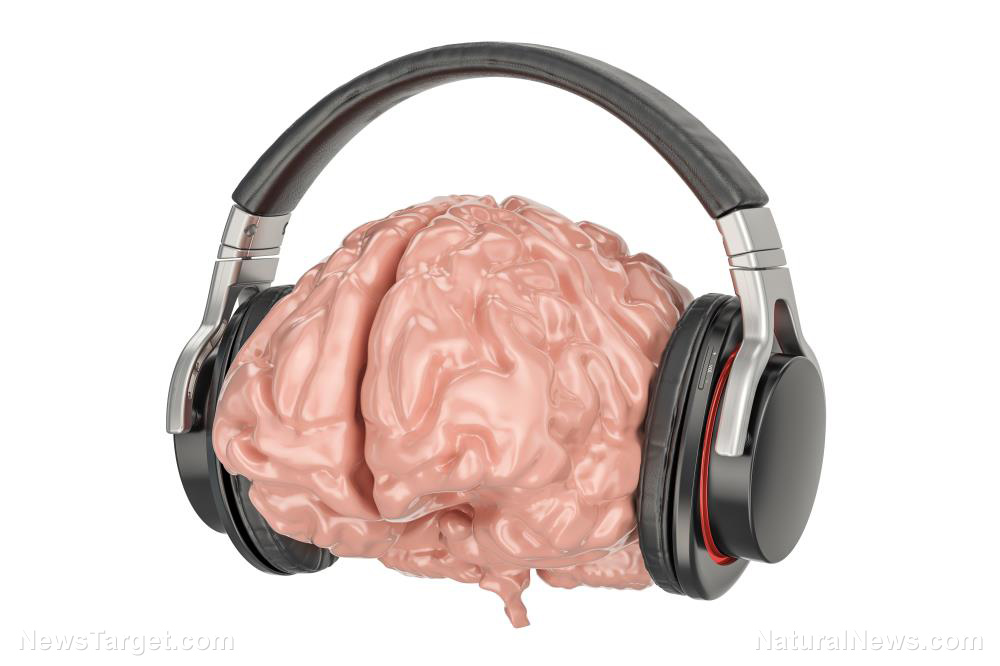Could this be the reason so many women are depressed and angry?
12/28/2019 / By Tracey Watson

A scan of the latest news reports from around the globe soon makes it clear that human beings are becoming more and more angry and depressed. This, despite the medical, scientific and technological breakthroughs of the past 100 years, which – theoretically at least – should mean that we experience longer, healthier and happier lives.
Of course, the mainstream medical approach to all this anger and depression is to try to medicate these feelings away with chemical drugs, most of which have severe side effects and don’t really get to the root of the problem anyway.
Very little emphasis is placed on trying to understand why society is exhibiting these symptoms, but the findings of a recent study might explain at least part of the reason why humans have become such a sad and angry species.
The study, which was recently presented to the Radiological Society of North America (RSNA), found that the contraceptive pill actually shrinks the size of the female brain – the part that, among other things, controls emotional responses. (Related: The hidden dangers of birth control pills doctors don’t want you to know.)
“Significantly smaller hypothalamus volume”
Very little information exists about the structural and functional effects of the contraceptive pill on the human brain, in particular on a portion of the brain known as the hypothalamus. As such, the researchers involved in the study set out to determine what effects, if any, contraceptive pills have on the brains of those who take them regularly. (Related: Do YOU take the risks of contraceptives seriously? Birth control pill nearly killed a young woman after blood clots and pneumonia left her unable to breathe.)
For their study, the scientists examined MRI scans taken from 50 healthy women, 21 of whom were currently taking the oral contraceptive pill. They found that those who were taking birth control pills had “significantly smaller hypothalamus volume.”
Healthline explains the functions of this part of the brain:
The hypothalamus is a small region of the brain. It’s located at the base of the brain, near the pituitary gland.
While it’s very small, the hypothalamus plays a crucial role in many important functions, including:
- releasing hormones
- regulating body temperature
- maintaining daily physiological cycles
- controlling appetite
- managing of sexual behavior
- regulating emotional responses
In other words, though the hypothalamus might be small, it is intimately involved in many important bodily functions, and a significant reduction in hypothalamus volume is therefore a serious problem. In addition, the study found that this reduction in size was significant in most cases.
“We found a dramatic difference in the size of the brain structures between women who were taking oral contraceptives and those who were not,” noted lead author Dr. Michael Lipton, a professor of radiology and the medical director of MRI Services at New York’s Montefiore Medical Center. “We validated methods for assessing the volume of the hypothalamus and confirm, for the first time, that current oral contraceptive pill usage is associated with smaller hypothalamic volume.”
According to the information released to the press, a reduction in hypothalamic volume has been associated with increased anger and “showed a strong correlation” to depression.
The researchers did not find any immediate link between a reduction in cognitive function and contraceptive use, but the link between such use and emotional problems was so marked that Dr. Lipton believes further research is required.
Interestingly, this is not the first study to find a link between depression and oral contraceptive use.
In 2016, Danish researchers who studied the medical histories of more than a million women over an 18-year period found that women who use hormonal contraceptives are more likely to be depressed. A study conducted by German researchers in 2016 found that oral contraceptive pills may be damaging women’s sense of emotional connection. In 2017, another Danish study suggested a link between the use of hormonal contraceptives and mood disturbances linked to increased suicide rates.
Clearly, the evidence is mounting that the sadness and depression experienced by so many in modern society may be closely linked to the number of women taking birth control pills. Learn more at WomensHealth.news.
Sources include:
Tagged Under: anger, Big Pharma, Birth control, brain damaged, brain function, brain health, contraceptives, depression, hormone health, hormones, hypothalamus, mental health, mind body science, oral contraceptive pill, research, side effects, the pill, toxic ingredients, women's health
RECENT NEWS & ARTICLES
COPYRIGHT © 2017 MIND BODY SCIENCE NEWS



















